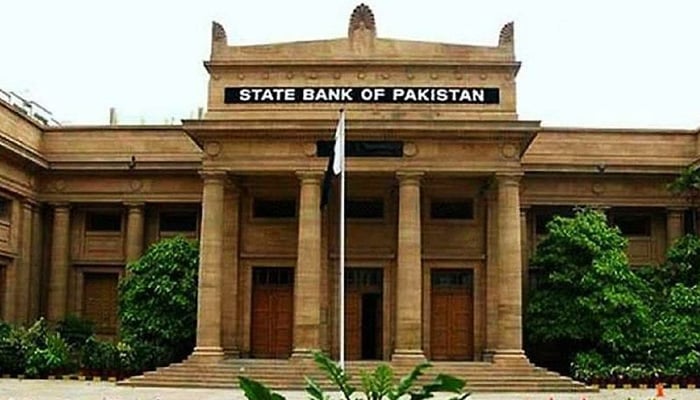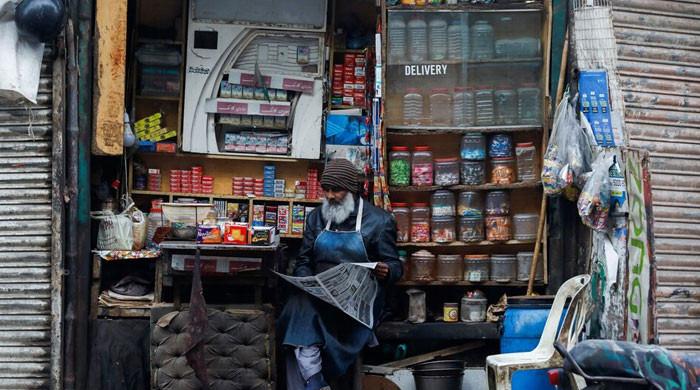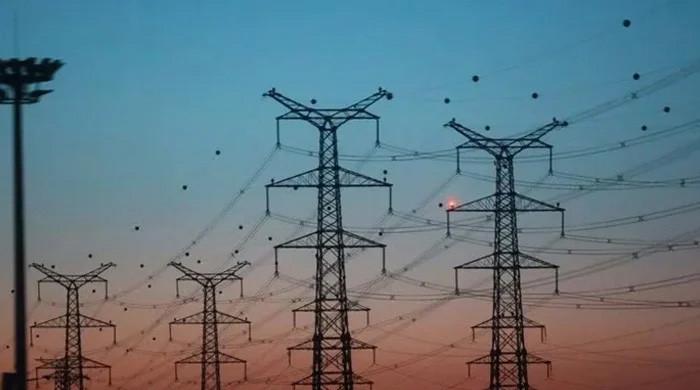SBP expects FX reserves to increase to $13bn by this FY's end
Central bank governor says over last 12 months, there has been a noticeable improvement in external account
October 26, 2024

KARACHI: Despite difficult circumstances, Pakistan's external account has improved dramatically since October 2023, said the State Bank of Pakistan (SBP) Governor Jameel Ahmad.
Hence, the central bank governor expects that foreign exchange reserves of the country will reach $13 billion by the end of this fiscal year.
This he said in a meeting on the sidelines of the 2024 IMF-World Bank Annual Meetings in Washington DC, The News reported.
Ahmad held meetings with representatives from major international investors and international rating agencies at events hosted by leading financial firms, including Standard Chartered Bank, JP Morgan, Bank of America, and Jefferies.
The governor stated that over the last 12 months, there has been a noticeable improvement in the external account, according to a statement released by the SBP. Despite the notable rise in imports, especially non-oil imports, and the normalisation of foreign investors' profit/dividend repatriation, the external current deficit has drastically decreased, remaining within manageable levels.
According to Ahmad, strong rise in both exports and worker remittances is the main reason for the current account balance's improvement. As of October 11, 2024, the SBP's foreign exchange reserves had grown from a low of $3.1 billion at the end of January 2023 to $11 billion thanks to the low current account and better financial inflows.
He informed that the SBP is targeting to increase its foreign exchange reserves to $13 billion by end-June 2025.
The foreign exchange buffers are strengthening, said Ahmad. He pointed out that the SBP’s prudent monetary policy stance and the government’s fiscal consolidation have played a crucial role in restoring macroeconomic stability in the country.
The governor acknowledged the challenges faced by the global and emerging economies, including Pakistan, and emphasised the necessity of tough yet essential policy responses to address these macroeconomic challenges. He noted that both the SBP and the government have implemented vital stabilisation measures, which are now yielding positive results.
Ahmad added that inflation has peaked and is now on a clear downward trajectory. Moreover, both overall public-sector debt and gross external financing needs relative to GDP have decreased substantially. Economic activity is also recovering with real GDP growth expected to improve further in the current fiscal year. As such, the economy is headed in the right direction, he concluded.
Ahmad explained that inflation in Pakistan peaked at 38% in May 2023 and is on a downward trajectory since then — reaching 6.9% (year-on-year) in September 2024. He added that the disinflation process remained broad-based, as core inflation also witnessed a noticeable decline in recent months.
Looking ahead, Ahmad stressed the importance of the structural reform agenda, supported by multilateral and bilateral partnerships under the new IMF programme. This comprehensive, home-grown reforms package aims to foster sustainable growth. He shared insights into the SBP’s strategic plan for 2024-2028, which prioritises price stability, the buildup of FX reserves, and the development of an innovative and inclusive digital financial services ecosystem to meet modern banking needs.
The plan also focuses on enhancing the efficiency, effectiveness, fairness and stability of the financial system.











